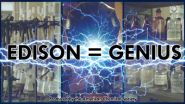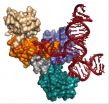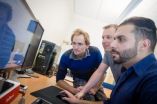(Press-News.org) Toronto – Want to be able to smell the roses?
You might consider buying into a neighbourhood where there are more sit-down restaurants than fast-food outlets, suggests a new paper from the University of Toronto's Rotman School of Management.
The paper looks at how exposure to fast food can push us to be more impatient and that this can undermine our ability to smell the preverbal roses.
One study, surveyed a few hundred respondents throughout the US on their ability to savor a variety of realistic, enjoyable experiences such as discovering a beautiful waterfall on a hike. Based upon their zip codes, the researchers linked participants' responses to objective information from the most recent US Economic Census on the concentration of fast-food restaurants in their neighborhood relative to sit-down restaurants. The findings revealed that people living in communities with higher prevalence of fast-food restaurants were significantly less able to enjoy pleasurable activities that require savoring, even when controlling for economic factors of the individual and the neighborhood. The study's authors propose that's because fast food can incite people to feel more impatient, diminishing their ability to slow down and savour life's simpler joys.
"If you want to raise kids where they're less impatient, they're able to smell the roses, they're able to delay gratification, then you should choose to live in a neighbourhood where there is a lower concentration of fast food restaurants," said Sanford DeVoe, an associate professor of organizational behavior and human resource management at the Rotman School, who co-wrote the paper with fellow Julian House, a Rotman PhD student, and Chen-Bo Zhong, an associate professor of organizational behavior and human resource management.
The researchers also conducted two experiments to evaluate whether the associations with fast food has a causal effect on people's ability to smell the roses. Pictorial reminders of fast food in its ready to go packaging were enough to raise people's impatience and interfere with their subsequent enjoyment of photos of natural beauty or an operatic aria.
However, study participants shown pictures of the same meals on regular ceramic tableware -- the kind you might use at home -- showed higher levels of enjoyment when experiencing these savoring activities.
The results "are counter-intuitive," said Prof. DeVoe. "We think about fast food as saving us time and freeing us up to do the things that we want to do. But because it instigates this sense of impatience, there are a whole set of activities where it becomes a barrier to our enjoyment of them."
The findings indicate the importance of thinking more carefully about the cues we're exposed to in our everyday environments -- including workplaces -- and how they can affect our psychology, he said.
The paper was published in Social Psychological and Personality Science.
INFORMATION:
Read a column from The New York Times on June 1 on the paper by Prof. DeVoe here.
For the latest thinking on business, management and economics from the Rotman School of Management, visit http://www.rotman.utoronto.ca/FacultyAndResearch/NewThinking.aspx.
The Rotman School of Management at the University of Toronto is redesigning business education for the 21st century with a curriculum based on Integrative Thinking. Located in the world's most diverse city, the Rotman School fosters a new way to think that enables the design of creative business solutions. For more information, visit http://www.rotman.utoronto.ca.
For more information:
Ken McGuffin
Manager, Media Relations
Rotman School of Management
University of Toronto
Voice 416.946.3818
E-mail mcguffin@rotman.utoronto.ca
Follow Rotman on Twitter @rotmanschool
Watch Rotman on You Tube http://www.youtube.com/rotmanschool
Study suggests fast food cues hurt ability to savor experience
2014-06-02
ELSE PRESS RELEASES FROM THIS DATE:
Gene therapy combined with IMRT found to reduce recurrence for select prostate cancer patients
2014-06-02
Fairfax, Va., June 2, 2014—Combining oncolytic adenovirus-mediated cytotoxic gene therapy (OAMCGT) with intensity modulated radiation therapy (IMRT) reduces the risk of having a positive prostate biopsy two years after treatment in intermediate-risk prostate cancer without affecting patients' quality of life, according to a study published in the June 1, 2014 edition of the International Journal of Radiation Oncology • Biology • Physics (Red Journal), the official scientific journal of the American Society for Radiation Oncology (ASTRO).
Previous prospective ...
How Thomas Edison laid the foundation for the modern lab (video)
2014-06-02
WASHINGTON, June 2, 2014 — Thomas Edison is hands-down one of the greatest inventors in history. He also had a love of chemistry that banished him to the basement as a kid. This week, the Reactions team went behind the scenes at the Thomas Edison National Historical Park to see how Edison's love of chemistry fueled his world-changing inventions. Recently named a National Historic Chemical Landmark, the complex is home to more than 400,000 artifacts (which we definitely weren't allowed to touch) and is considered the template for modern research-and-development labs everywhere. ...
Scientists capture most detailed images yet of humans' tiny cellular machines
2014-06-02
MADISON, Wis. — A grandfather clock is, on its surface, a simple yet elegant machine. Tall and stately, its job is to steadily tick away the time. But a look inside reveals a much more intricate dance of parts, from precisely-fitted gears to cable-embraced pulleys and bobbing levers.
Like exploring the inner workings of a clock, a team of University of Wisconsin-Madison researchers is digging into the inner workings of the tiny cellular machines called spliceosomes, which help make all of the proteins our bodies need to function. In a recent study published in the journal ...
Computer scientists develop tool to make the Internet of Things safer
2014-06-02
Computer scientists at the University of California, San Diego, have developed a tool that allows hardware designers and system builders to test security- a first for the field. One of the tool's potential uses is described in the May-June issue of IEEE Micro magazine.
"The stakes in hardware security are high", said Ryan Kastner, a professor of computer science at the Jacobs School of Engineering at UC San Diego.
There is a big push to create the so-called Internet of Things, where all devices are connected and communicate with one another. As a result, embedded ...
NASA's TRMM satellite sees Eastern Pacific tropical cyclone forming
2014-06-02
VIDEO:
This 3-D animated fly-by of developing tropical low pressure System 93E on June 2 revealed the highest thunderstorms (in red) as it continues to develop.
Click here for more information.
There's a new tropical low pressure area brewing in the Eastern Pacific and NASA's TRMM satellite flew overhead and got a read on its rainfall rates and cloud heights.
The eastern Pacific Ocean has become active on cue with the start of the hurricane season in that area. Only a few days ...
Laser device can detect alcohol in cars, say authors in Journal of Applied Remote Sensing
2014-06-02
BELLINGHAM, Washington, USA — A new open-access article in the Journal of Applied Remote Sensing is garnering attention for research that could aid in the campaign to prevent drunk driving: a device that can detect alcohol in cars. The Journal of Applied Remote Sensing is published by SPIE, the international society for optics and photonics.
The article "Stand-off detection of alcohol in car cabins," by Jarosław Młyńczak, Jan Kubicki, and Krzysztof Kopczyński of the Military University of Technology in Warsaw, details experiments using an external ...
Solving the puzzle of ice age climates
2014-06-02
The paleoclimate record for the last ice age — a time 21,000 years ago called the "Last Glacial Maximum" (LGM) — tells of a cold Earth whose northern continents were covered by vast ice sheets. Chemical traces from plankton fossils in deep-sea sediments reveal rearranged ocean water masses, as well as extended sea ice coverage off Antarctica. Air bubbles in ice cores show that carbon dioxide in the atmosphere was far below levels seen before the Industrial Revolution.
While ice ages are set into motion by Earth's slow wobbles in its transit around the sun, researchers ...
Seniors who exercise regularly experience less physical decline as they age
2014-06-02
COLUMBIA, Mo. –The majority of adults aged 65 and older remains inactive and fails to meet recommended physical activity guidelines, previous research has shown. However, these studies have not represented elders living in retirement communities who may have more access to recreational activities and exercise equipment. Now, researchers at the University of Missouri found that older adults in retirement communities who reported more exercise experienced less physical decline than their peers who reported less exercise, although many adults — even those who exercised — did ...
CDC report: Patients harmed after health-care providers steal patients' drugs
2014-06-02
Rochester, MN, June 2, 2014 – When prescription medicines are stolen or used illegally, it is called drug diversion. One aspect of drug diversion that is not well recognized involves health care providers who steal controlled substances for their personal use. A report authored by experts from the Centers for Disease Control and Prevention (CDC) --published today in Mayo Clinic Proceedings -- outlines outbreaks of infections that have occurred as a result of health care providers stealing or tampering with their patients' medications. These outbreaks revealed gaps in prevention, ...
Rensselaer researchers predict the electrical response of metals to extreme pressures
2014-06-02
Troy, N.Y. – Research published today in the Proceedings of the National Academy of Sciences makes it possible to predict how subjecting metals to severe pressure can lower their electrical resistance, a finding that could have applications in computer chips and other materials that could benefit from specific electrical resistance.
The semiconductor industry has long manipulated materials like silicon through the use of pressure, a strategy known as "strain engineering," to improve the performance of transistors. But as the speed of transistors has increased, the limited ...




